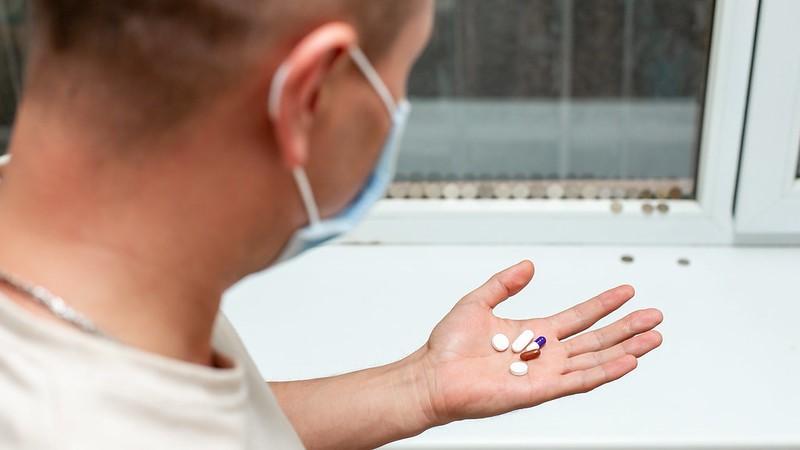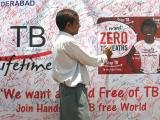A core component of the treatment regimen for drug-resistant tuberculosis (DR-TB) is now available to nearly 100 low-resources countries at a significantly cheaper price.
The news was announced today by the Stop TB Partnership, which said pharmaceutical giant Johnson & Johnson (J&J) will supply the Global Drug Facility (GDF) with Sirturo (bedaquiline) at a cost of US $130 per 6-month treatment course—a 55% reduction from the current price of $289. Indian generic drugmaker Lupin will sell its version of the drug through GDF for $194 for a 6-month treatment course, representing a 33% price reduction.
Officials with GDF, which was created by Stop TB Partnership in 2001 to promote equitable access to TB drugs and diagnostics, say the $8 million in savings generated by the bedaquiline price cut will enable procurement of more than 51,000 additional treatments of the drug for low- and middle-income countries (LMICs), where the burden of DR-TB is highest.
"We consider this price reduction to be a big feat," GDF chief Brenda Waning, PhD, MPH, said at press conference.
The 'backbone' of DR-TB treatments
The price reductions come a month after the expiration of the primary patent for bedaquiline, which was developed by J&J and is the "backbone" of the two World Health Organization (WHO)-recommended treatment regimens for rifampicin-resistant and multidrug-resistant (MDR)-TB—BPaL (bedaquiline, pretomanid, and linezolid) and BPaLM (bedaquiline, pretomanid, linezolid, and moxiflacin).
The 6-month, all-oral regimens are significantly shorter, less toxic, and more effective than previous regimens. Before bedaquiline (approved by the US Food and Drug Administration in 2012) and later pretomanid (approved in 2019) came along, DR-TB regimens lasted up to 2 years, included painful injectable drugs with significant side effects, and had a treatment success rate of less than 50%. Both BPaL and BPaLM have demonstrated treatment success rates of 90% or higher.
"This is a historic moment," Cheri Vincent of the United States Agency for International Development (USAID), which leads the US government's global TB efforts, said at the press conference. "The introduction of bedaquiline changed the trajectory for the most vulnerable people."
After more than a year of negotiations, J&J in early July granted GDF licenses to tender, procure, and supply generic versions of bedaquiline, a move that GDF officials hoped would bring down the price of the drug. With the price cut, the cost of the BPaL regimen is reduced by 29% and the BPaLM regimen by 28%. The contract with the two companies will run until the end of 2024.
This price reduction gives us the opportunity to treat more people in an effective way.
The WHO estimates that 450,000 people globally suffer from DR-TB each year, but only 162,000 were treated in 2021. That's the result of a combination of limited access to treatment and to the molecular diagnostic tests that are needed to identify patients.
Peter Sands of the Global Fund, which is the largest global funder of national TB programs, said the reduced price will enable the organization to roughly double the amount of MDR-TB patients whose treatment it's currently funding.
"MDR-TB is a really, really nasty disease," Sands said. "This price reduction gives us the opportunity to treat more people in an effective way."
Cheaper diagnostic tests needed
Christophe Perrin, PharmD, MPH, of Medicins Sans Frontieres (MSF), which has been critical of J&J for trying to enforce secondary patents for bedaquiline in some countries, said in an emailed statement that MSF welcomes the news, noting that the price drop "finally brings the price closer to the estimated generic price of $0.50 per day."
But Perrin, who noted that some high-burden countries are excluded from the deal and will be blocked from buying bedaquiline at the lower price, reiterated MSF's call for J&J to withdraw all of its secondary patents on bedaquiline.
GDF Chief Waning said countries that are excluded from the deal could still negotiate a lower price for bedaquiline based on the GDF price.
Stop TB Partnership Executive Director Lucica Ditiu, MD, said that while the bedaquiline price reduction will significantly increase the number of people who have access to shorter DR-TB treatment regimens and help save lives, cheaper rapid molecular tests will be needed to help identify the nearly 300,000 DR-TB patients who are undetected and can spread the infection.
"We're not out of the woods, but this is a big step forward" she said.






















